Discover why carbon steel cookware is gaining popularity for its durability and affordability, and learn how to use it safely with these expert tips. Find out if it’s the right choice for your kitchen and enjoy safe cooking with confidence.
In this article, we’ll delve into the risks that come with cooking in carbon steel pans. These risks include chemical leaching, rusting, and potential health concerns. But don’t worry, we’ll provide you with tips and tricks to ensure your cookware remains safe to use. Despite these risks, there are still many who prefer using carbon steel pans – we’ll explain why.
By the end of this article, you’ll be equipped with the knowledge to make an informed decision on whether or not carbon steel cookware is right for you.
What Is Carbon Steel?
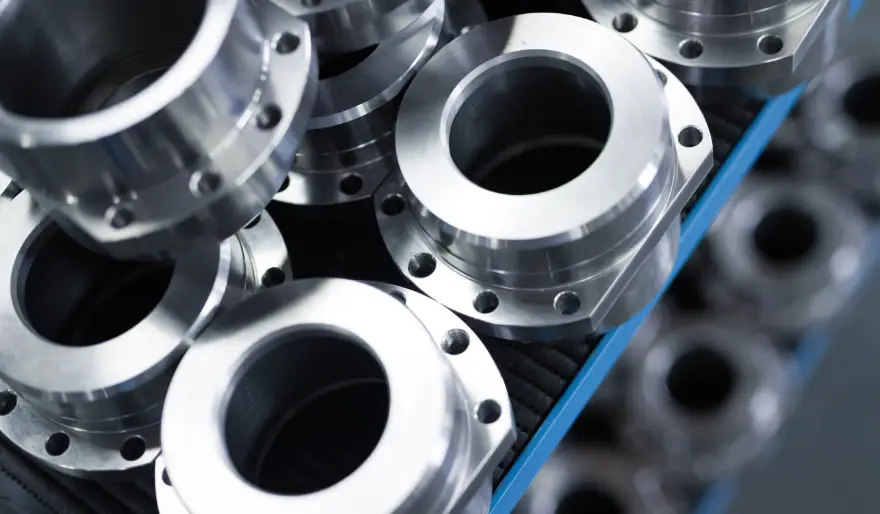
Discover the strength and versatility of carbon steel, an alloy of iron and carbon that is a popular choice for cookware. Enjoy the benefits of even heat distribution and durability at an affordable price compared to other materials such as stainless steel or copper. With proper maintenance, carbon steel pans can last for decades, making them a wise investment for any kitchen.
Is Carbon Steel Toxic?
Carbon steel cookware is safe and non-toxic to use. However, it’s important to be aware of certain safety concerns when handling this type of cookware. Read on to learn more.
Choosing the right coating for your carbon steel cookware is essential for its safety. Uncoated cookware can lead to metal leaching when exposed to acidic foods, detergents, and high heat. To prevent such exposures, it’s wise to invest in pre-seasoned or non-stick coated cookware.
Unlike some other cookware, carbon steel is not non-stick. It can become sticky or discolored when exposed to high heat. If this occurs, it’s recommended to avoid cooking with it as it may risk ingesting metallic particles from the metal surface if it flakes off into food.
Extend the lifespan and safety of your carbon steel cookware with these key tips. To start with, avoid using metal utensils when cooking as this can harm the coating and cause food to stick or leak into your meals.
Additionally, make sure to thoroughly clean your cookware after every use to prevent the accumulation of rust and bacteria or other contaminants.
Is Carbon Steel Better Than Cast Iron?
Discover why chefs are ditching cast iron for carbon steel cookware. With superior heat conduction and retention, cooking with carbon steel guarantees evenly cooked and delicious meals in less time.
Plus, its non-porous surface locks in flavor and requires less maintenance than traditional cast iron. Upgrade your cooking game with carbon steel today.
On the other hand, cast iron is less costly compared to carbon steel and does not rust as easily if maintained properly. Regular seasoning is required for your carbon steel cookware to prevent discoloration and corrosion.
Are you torn between using carbon steel or cast iron in your kitchen? Both options are safe when properly maintained. For those seeking lighter and more even cooking, carbon steel may be the way to go. On the other hand, cast iron is still a great choice for those on a budget or not concerned with rust prevention.
Make the choice that works best for you and enjoy cooking with confidence. [1]
Is Carbon Steel Safe For Cookware?
Discover the safety and benefits of using carbon steel cookware in your kitchen. This type of metal is made up of iron and small amounts of carbon, typically around 1-2 percent. Carbon steel is lightweight, durable, and easy to maintain versus other metals like stainless steel or cast iron. Its impressive heating capabilities make it perfect for sautéing or frying as it heats evenly and retains heat exceptionally well.
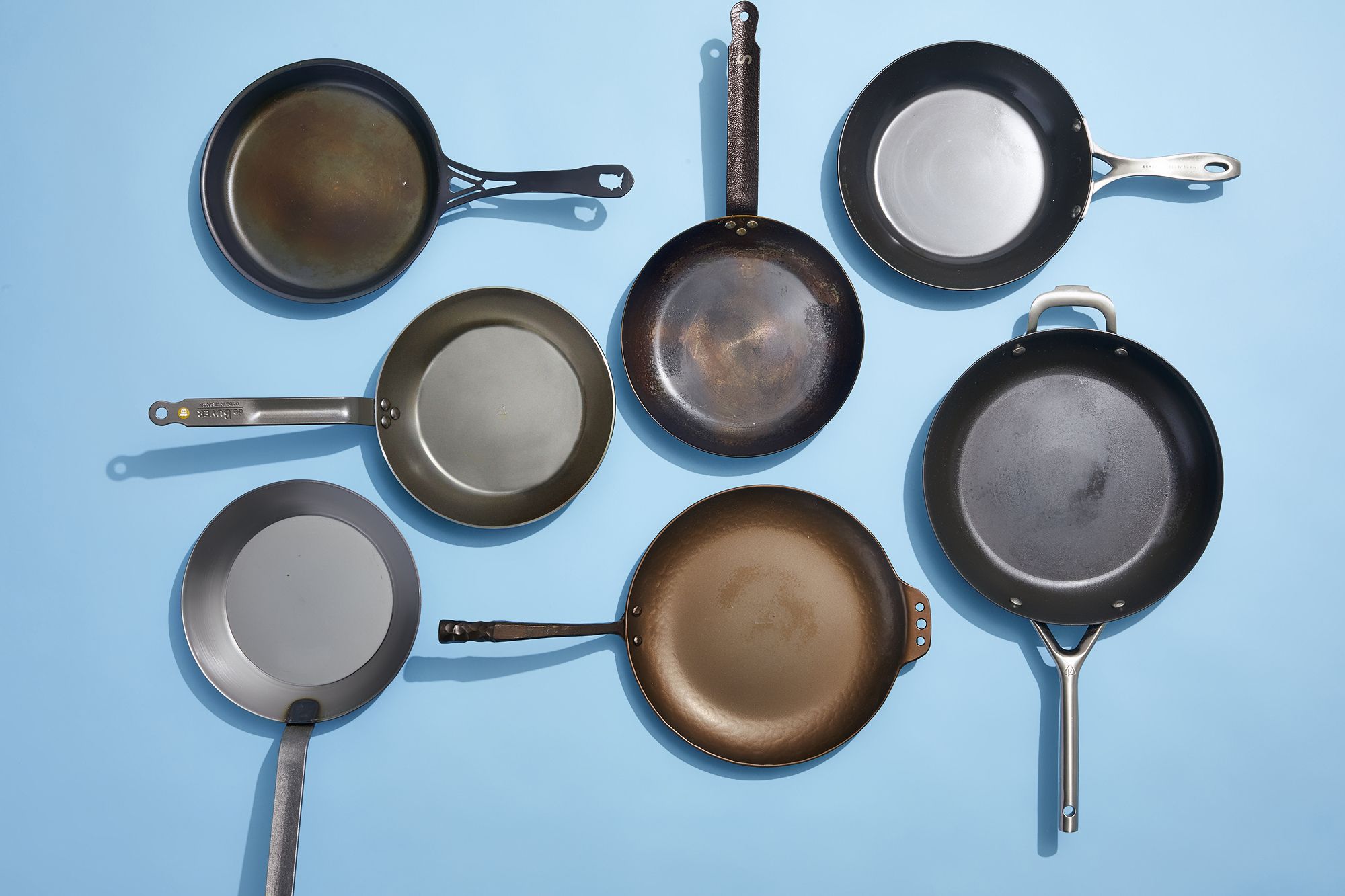
To ensure your safety while using carbon steel cookware, it’s important to keep a few things in mind.
First, be sure to properly care for it to prevent rusting. Also, note that when heated, carbon steel may release small amounts of iron. If using a non-stick coating, check for PFOA and PTFE, known carcinogens.
And, avoid using carbon steel for acidic recipes as it can corrode and leave trace elements. With these precautions, you can confidently cook with carbon steel and enjoy delicious meals.
What Can You Cook In Carbon Steel?
Discover the limitless possibilities of cooking with carbon steel cookware. Whether you’re searing meats, frying eggs, cooking vegetables or baking desserts, carbon steel is remarkably versatile. Its exceptional heat conductivity guarantees even cooking with no hot or cold spots, while also enabling the perfect crust on your meats and fish. Don’t miss out on this must-have addition to your kitchen arsenal.
How Carbon Steel Cookware Heats Up
Looking for a cookware that can handle high-heat cooking with ease? Look no further than carbon steel! Not only does it distribute heat more evenly, but it also provides consistent, intense heat that won’t dissipate quickly when adding food to the pan.
The end result: faster cooking times and perfectly seared meats and sautéed vegetables every time. The sloped sidewall of carbon steel cookware makes it more convenient to move and flip foods while cooking. The sloped sides also make cleanup a breeze since there’s less surface area for ingredients to stick to. [2]
A Warning About Acidic Foods
Cooking with acidic ingredients like tomatoes and citrus fruits in carbon steel cookware may result in some iron leaching into the food. To prevent this from happening, periodically season your cookware with oil, creating a non-stick surface that can contain any possible leaching.
And don’t preheat empty carbon steel pans, as this could cause rust and leave residue that could interact with your food. Follow these tips for safe and delicious meals.
It’s not recommended to use carbon steel cookware for extended periods while cooking acidic foods. Make sure to follow the guidelines mentioned above and use moderate heat when cooking with acidic ingredients in carbon steel cookware, if you choose to do so.
Is Carbon Steel Nonstick
Did you know that plain carbon steel cookware isn’t naturally nonstick? Adding a nonstick coating to the surface of carbon steel pans can be harmful for your health since it reduces heat conductivity and can leak harmful chemicals into your food. However, there’s a better way to achieve a nonstick surface on your carbon steel pans – season them with oil and follow the right cooking practices.
Get your hands on truly nonstick cookware today! This will help create a nonstick surface, but it won’t be as reliable and lasting as the coating on a nonstick pan. If you need a truly non-stick surface for delicate dishes or with ingredients that are prone to sticking, then it’s best to opt for an actual nonstick pan.
Benefits Of Cooking With Carbon Steel Cookware
Discover the advantages of using carbon steel cookware in your kitchen! With its exceptional durability and high-temperature resilience, cooking with this versatile material can enhance your culinary skills like never before. Whether you’re grilling, searing, sautéing, roasting, or exploring new recipes, carbon steel cookware is perfect for all your cooking needs. Start enjoying the benefits of this amazing cooking tool today!
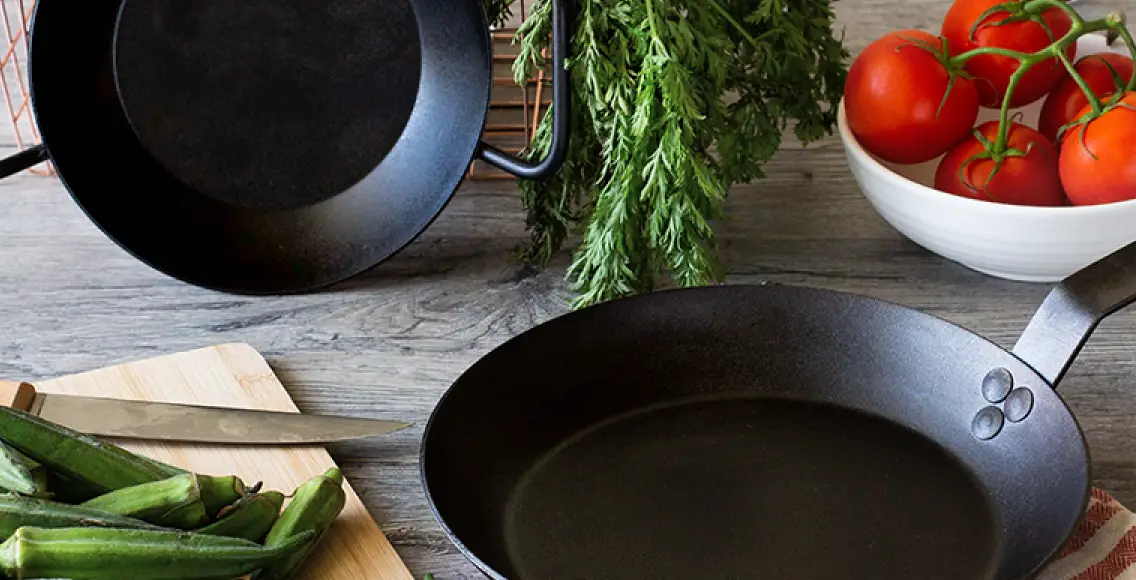
Carbon steel cookware is highly efficient in conducting heat, which is an added advantage. This means that your food will be cooked evenly and quickly, resulting in-tasting dishes. Furthermore, the even distribution of heat prevents the formation of hotspots that may cause food to be burnt or overcooked in some areas.
Compared to other types of cookware, carbon steel cookware is relatively affordable. This makes it an excellent option for cooks who are on a budget and do not want to spend a lot of money on expensive sets. [3]
The Carbon Steel Cookware Cons
Discover why carbon steel cookware is the superior choice for serious cooks. With its exceptional heat conductivity and unmatched durability, carbon steel outperforms other materials like aluminum and copper. Plus, its high iron content minimizes the risk of harmful metals leaching into your food.
Experience the difference with carbon steel cookware.
Concerns have been raised about the use of carbon steel cookware due to the potential release of harmful carcinogenic compounds while cooking. Although research on this topic is inconclusive, some studies suggest that certain chemicals found in carbon steel could pose a health risk if ingested.
Moreover, compared to other materials, carbon steel is more susceptible to corrosion, which may necessitate more frequent replacement.
How To Clean Carbon Steel Cookware
Proper cleaning and maintenance can help keep carbon steel cookware safe. Some tips for maintaining the quality of your carbon steel cookware include:
It is advised to clean the pan after each use using a soft cloth or sponge and warm soapy water. Make sure to rinse using hot water completely to eliminate all soap remains.
To prevent rusting, make sure to dry the pan with a soft cloth or paper towel after every use.
To your cookware, you should spread a thin layer of oil on both the inside and outside of the pan. Before cooking, bake it in an oven at 375°F for approximately 10 minutes.
To prevent rusting, store your carbon steel cookware in a dry place and away from any moisture or humidity. [4]
Tips For Using Carbon Steel Cookware
Maximize the benefits of your cooking experience by using carbon steel cookware. Not only is it safe and durable, but also easy to maintain with these helpful tips for peak condition.
For even cooking, preheat your pan before adding food or liquid. Also, it’s crucial to season the pan by coating it with a thin layer of oil and heating it over medium heat on the stovetop before use.
This creates a non-stick surface and guarantees the pan can endure high temperatures.
Maximize your cooking experience by using wooden or silicone utensils that won’t leave unsightly scratches on your pans. While carbon steel is tough, it’s not impervious to damage from sharp objects, which can negatively impact its long-term performance. Make the most of your investment in kitchen equipment by taking proper care of it.
Make sure to never soak your carbon steel cookware for a long time or apply strong cleaning chemicals on it. Instead, focus on wiping away food particles with warm soapy water or a nylon scrubber. This will help to keep the surface of the pan in top condition for years to come.
Should You Go For Carbon Steel Cookware?
Discover the Benefits and Safety of Carbon Steel Cookware for Your Kitchen. Get long-lasting durability, great cooking performance, and peace of mind. Learn about potential health risks so you can make an informed choice. Say goodbye to hidden dangers and hello to delicious meals with carbon steel cookware.
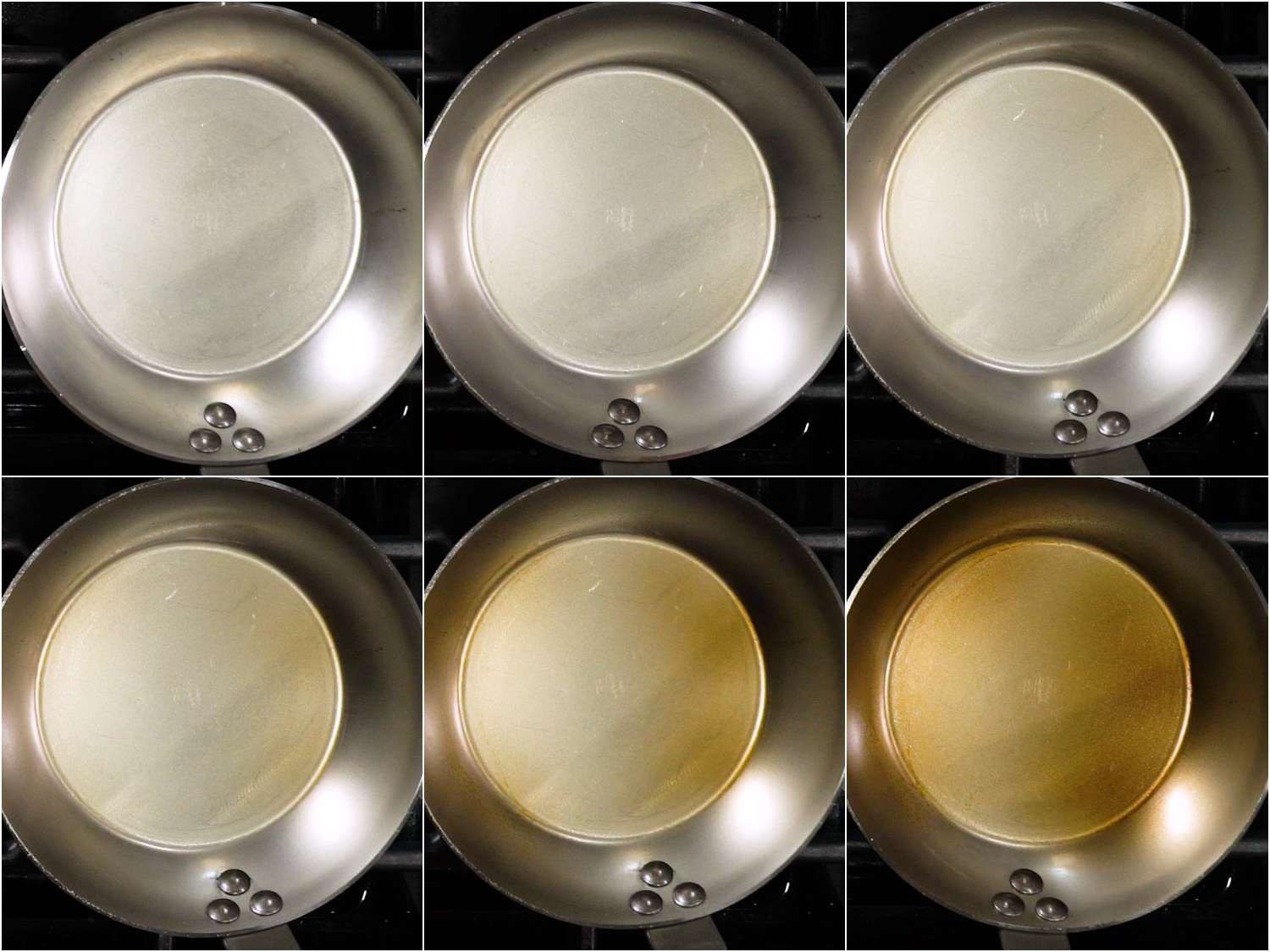
Carbon steel cookware is an ideal choice for many kitchens. This type of cookware has a long history of being reliable, versatile and economical, which makes it popular among both home cooks and professional chefs. Carbon steel is made from iron ore that has been mixed with carbon to increase its durability and heat resistance. The result is strong, lightweight cookware that is ideal for cooking and baking. [5]
FAQ
What are the disadvantages of a carbon steel pan?
Carbon steel pans require more maintenance than other types of cookware. After each use, these pans must be seasoned and they lack the non-stick qualities of stainless steel or Teflon pans. Improper drying after washing can cause rust, and some cooks may find the weight of carbon steel to be too heavy. It’s important to keep in mind that carbon steel pans should not be washed in a dishwasher.
Also, if you use high heat with these pans, they may discolor or warp.
What is the safest cookware for your health?
Keep your meals and health safe by using the right cookware. Opt for stainless steel, ceramic, or glass instead of carbon steel. The latter contains a higher amount of chemicals that are harmful to your body when they seep into your food. Choose stainless steel and avoid dangerous chemicals and toxins altogether. Ceramic and glass are also great choices since they do not react with food or leach chemicals. To ensure that you are getting the safest cookware, make sure to do your research and read reviews before purchasing any product.
Additionally, be aware of any non-stick coatings, as some may contain dangerous compounds such as Teflon. Finally, always remember to follow manufacturer’s instructions for use, maintenance, and storage. With the right cookware, you can enjoy your meals safely and confidently.
Do carbon steel pans have chemicals?
Carbon steel cookware is free of any harmful chemicals or toxins, making it a safe choice for cooking. It also does not absorb oils or flavors from food, ensuring that it remains safe to use. In rare instances, a thin layer of vegetable oil coating may be applied to prevent rusting during manufacturing, but this does not contain any toxic chemicals. Always remember to double-check the label for warnings before using a carbon steel pan.
Why do chefs love carbon steel pans?
There are several reasons why chefs from all over the world prefer using carbon steel cookware. Discover the unbeatable strength and exceptional durability of carbon steel cookware. These pans are not only ideal for retaining heat, but also lightweight and easy to handle in the kitchen. Plus, the nonporous and non-stick surface means that food won’t stick and cleanup is a breeze. Upgrade your cooking game with carbon steel pans today. And finally, they are relatively affordable when compared to other materials like copper or ceramic.
Is cooking with carbon steel healthy?
Discover the Pros and Cons of Cooking with Carbon Steel Cookware. One of the Benefits is its versatility: it can handle high-heat applications to sear and fry without damaging the material.
Further, Carbon steel’s excellent heat conductivity ensures even cooking from all sides – ideal for healthy cooking. Moreover, carbon steel has a natural non-stick property, which means you don’t need to use heavily processed oils or any other cooking agents to prevent your food from sticking. One disadvantage of using carbon steel is that it can release iron into the food during the cooking process.
While this may not be an issue for those who need extra iron in their diet, those who are prone to iron overload may want to consider avoiding carbon steel cookware. Furthermore, not seasoning your carbon steel pan properly can lead to food sticking and burning during cooking. If you’re planning to prepare acidic dishes like tomato or vinegar-based recipes, it’s best to steer clear of carbon steel cookware.
However, if you’re into high-heat cooking, carbon steel can be a great option for you! Just remember to weigh the possible health risks before incorporating it into your regular cooking routine. Make your cooking experience hassle-free by seasoning your pan properly and taking caution when preparing acidic dishes. For added safety, seek advice from a healthcare professional before using carbon steel cookware.
What is the problem with carbon steel?
Discover the challenges of using carbon steel cookware and how to overcome them. Without proper seasoning and care, carbon steel can rust due to iron’s high potential for corrosion from moisture and air exposure. Furthermore, there are worries about metal toxins leaching into food when using carbon steel cookware.
Additionally, acidic food, for example, tomatoes, could react with the metal, producing a metallic taste. But, with the right care, you can enjoy the benefits of carbon steel cookware for a long time.
Is carbon steel better than Teflon?
Discover the benefits of switching to carbon steel cookware over Teflon-coated pans. Enjoy better heat conductivity, durability, and a nonstick surface with proper seasoning and care. Unlike Teflon, carbon steel won’t peel or flake off over time. While it may require a bit more care, the results are worth it.

Say goodbye to sticky and uneven cooking surfaces and hello to the superior quality of carbon steel. Ultimately, the decision of which cookware is better for you will depend on your individual needs and preferences.
What is better: stainless steel or carbon steel cookware?
Choosing between stainless steel and carbon steel cookware options can be a tough decision. While stainless steel is pricier, it’s unmatched when it comes to its corrosion and rust resistance. Carbon steel, on the other hand, offers superior heat retention, making it perfect for searing or frying tasks. Both materials are safe to use for food prep, ensuring that meals are prepared with no health hazards. When deciding between stainless steel and carbon steel cookware, your cooking needs and budget will play a big role. Both options are safe for cooking and have distinct advantages.
While carbon steel is excellent at retaining heat, stainless steel offers superior resistance against corrosion. Regardless of which you choose, you can rest assured that both materials are non-toxic and suitable for cooking. Depending on the type of cooking you plan to do, either material can offer great results and both are considered safe for use when it comes to food preparation.
What should I avoid in cookware?
When it comes to cookware, there are certain materials that should be avoided because they can release hazardous chemicals when heated. This includes non-stick coatings (such as Teflon), plastic, and aluminum. Attention all kitchen enthusiasts!
Are you concerned about the potentially harmful materials that can leach into your food from certain types of cookware? Fear not, as we have the solution for you!
Introducing carbon steel cookware – a safe and healthy alternative that is widely available and affordable. Not only that, it is also durable and can withstand the test of time with proper care.
Don’t compromise your health, make the switch to carbon steel cookware today!
What is the best metal to cook food in?
When it comes to choosing what type of metal to cook food in, there are several factors to consider.
Stainless steel cookware ensures safety in the kitchen, as its non-reactive properties prevent food from being contaminated with harmful toxins. Unlike other cookware materials, stainless steel does not contain chemicals like lead or cadmium that can have negative effects on your health. Stay safe and healthy by selecting stainless steel cookware for your kitchen.
Discover the safe choice for your kitchen with the non-reactive properties of stainless steel.
Say goodbye to toxins and contamination worries as your food will not react with other metals when cooked in high-quality stainless steel cookware. Moreover, benefit from the absence of harmful chemicals like lead or cadmium, commonly found in some other cookware options. Prioritize your safety and choose stainless steel.
Carbon steel is a high-strength alloy composed of iron and carbon. Its superior durability and heat conduction properties make it a commonly used metal in industrial settings. Though not as non-reactive as stainless steel, carbon steel is considered safe when used appropriately. And, since it’s less expensive than stainless steel, carbon steel cookware is often a popular choice for those looking to stick to a budget.
What is the best kitchen cookware for health?
When it comes to choosing the best kitchen cookware for health, many people turn to carbon steel cookware. Carbon steel is a metal alloy that is safe for human use and consists mainly of iron with a small amount of carbon. Its use has been linked with better food safety, because it does not easily leach chemicals into food like some other materials can. Carbon steel cookware is durable, conducts heat well, and is affordable.
Curious about the safety of carbon steel cookware? Rest assured, it’s a resounding yes! This kitchen staple has been trusted for centuries for good reason: it’s safe and dependable. Boasting a lack of toxic materials and the ability to withstand high heat without compromising the quality of your meals, carbon steel cookware is a top choice for busy cooks thanks to its easy maintenance. So for the healthiest cooking results, choose non-toxic carbon steel cookware.
Useful Video: Everything you need to know about carbon steel cookware
Conclusion
To sum up, using carbon steel cookware is a budget-friendly and secure option for cooking. This product offers the benefits of stainless steel, including being strong and having a high capacity to retain heat, while also being priced affordably. Carbon steel cookware is more long-lasting compared to other materials due to its high durability and strength. One disadvantage of carbon steel is that it may rust if not taken care of properly. It is important to season and maintain your cookware regularly to ensure its longevity and safety. By regularly taking care of it, you can use carbon steel for cooking and reap its advantages for a long time.
References
- https://debuyer-usa.com/blogs/guides/is-carbon-steel-safe
- https://www.cooksdirect.com/what-to-know-before-buying-a-carbon-steel-pan
- https://madeincookware.com/blogs/is-carbon-steel-cookware-safe-for-cooking
- https://www.twokitchenjunkies.com/is-carbon-steel-safe/
- https://www.lacademie.com/is-carbon-steel-cookware-safe/

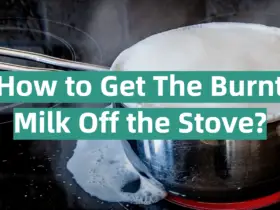



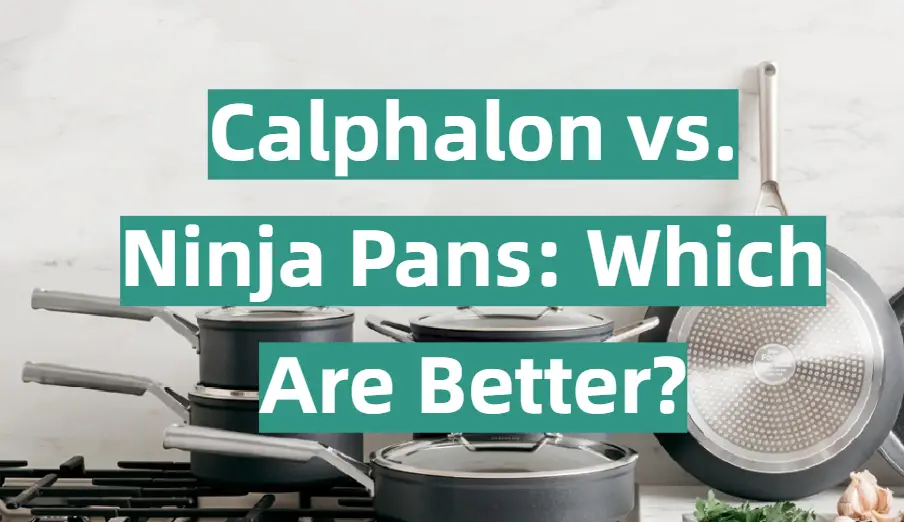
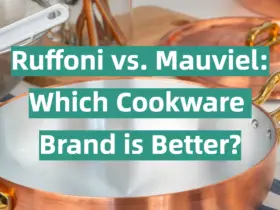
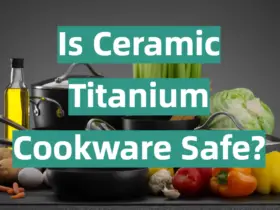
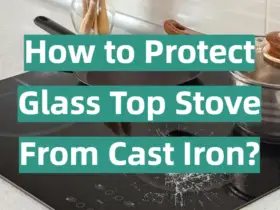

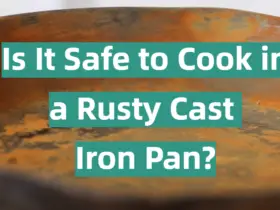
Leave a Reply